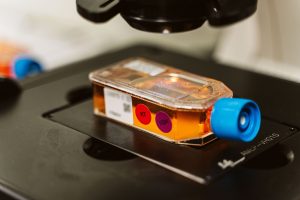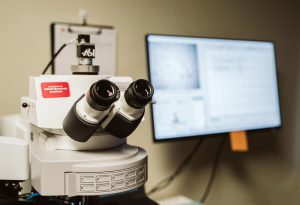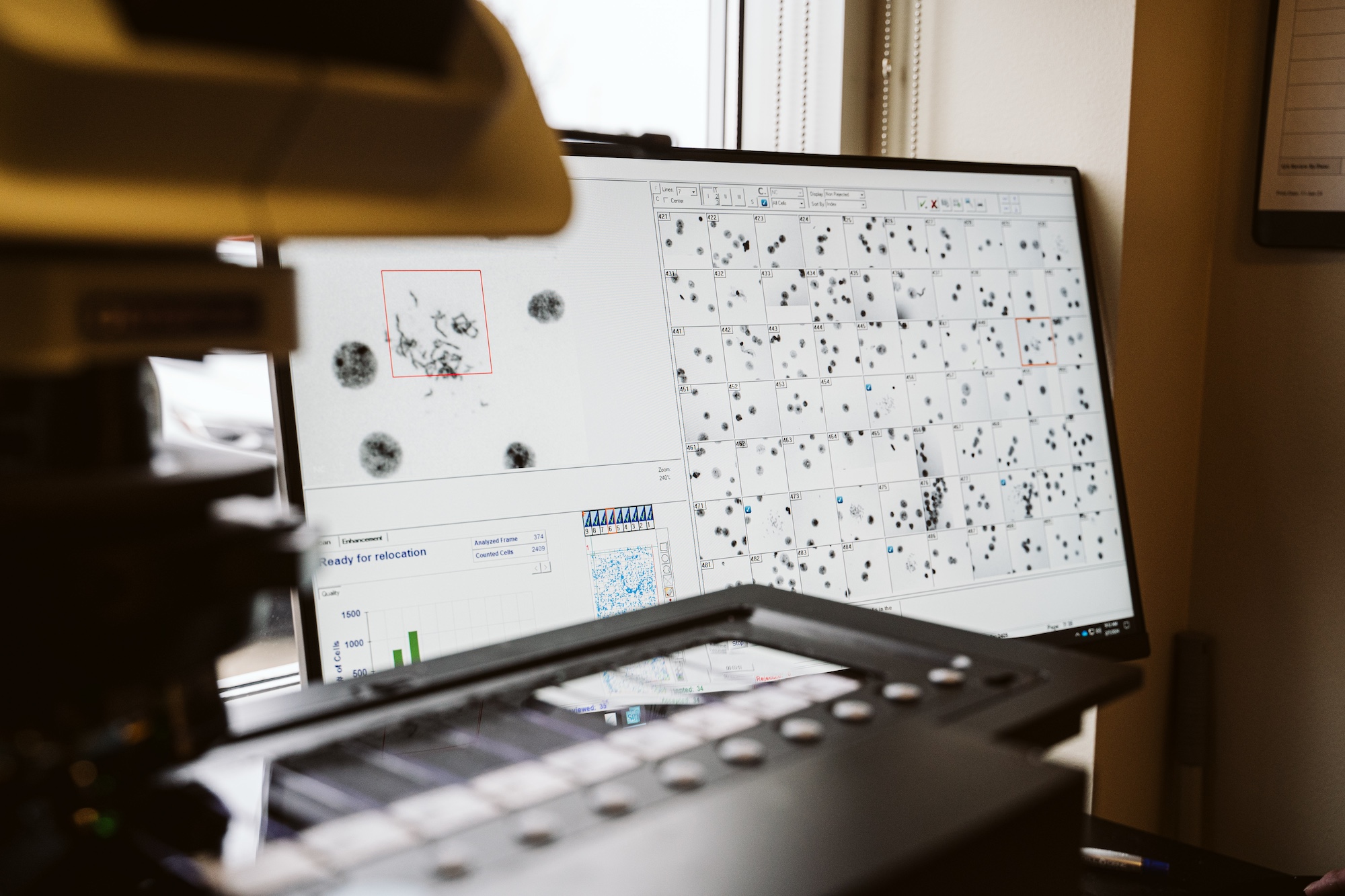Ensuring Genetic Integrity in Stem Cell Cultures
Over time, genetic abnormalities can arise in stem cell lines in culture, potentially compromising research integrity, therapeutic safety, and regulatory compliance. It is important to perform regular, reliable genetic testing of your stem cell lines to avoid unexpected outcomes as your research progresses.
The Role of Karyotyping in Stem Cell Quality Control
 To maintain the integrity of stem cell lines, routine genetic characterization is essential. WiCell’s karyotyping services, optimized specifically for pluripotent stem cells, provide a comprehensive analysis of chromosomal stability using G-banded karyotyping. This gold-standard method is widely recognized by researchers and regulatory bodies for its ability to identify chromosomal abnormalities, ensuring the accuracy and safety of stem cell-based research and therapies.
To maintain the integrity of stem cell lines, routine genetic characterization is essential. WiCell’s karyotyping services, optimized specifically for pluripotent stem cells, provide a comprehensive analysis of chromosomal stability using G-banded karyotyping. This gold-standard method is widely recognized by researchers and regulatory bodies for its ability to identify chromosomal abnormalities, ensuring the accuracy and safety of stem cell-based research and therapies.
Why Choose Karyotyping?
WiCell’s chromosome analysis is optimized for pluripotent stem cells. Our analysis are reviewed by an American Board of Medical Genetics and Genomics (ABMGG) board certified or board eligible director, with results available in 7-10 days.
Karyotyping at WiCell is a powerful tool for detecting a wide range of genomic abnormalities, providing researchers with critical insights into their cell lines. Our karyotyping assay detects Microscopic genomic abnormalities (>5-10 Mb) such as: inversions, duplications/deletions, and both balanced and unbalanced translocations. Our karyotyping assay is also particularly effective in identifying aneuploidies—cases where cells have an abnormal number of chromosomes. In addition, WiCell’s karyotyping can detect cases where there is >10% mosaicism (for example: cultures where >1 of 10 cells are trisomy 12).
What it detects:
- Microscopic genomic abnormalities (>5-10 Mb)
- Inversions
- Duplications/deletions
- Balanced and unbalanced translocations
- Aneuploidies
- >10% mosaicism (for example: cultures where >1 of 10 cells are trisomy 12)
When your karyotype is complete you will be provided with a Chromosome Analysis Report. Additional information is provided on our Glossary of Karyotype Report Terms.
cGMP and Research Grade Options Available
 WiCell offers research grade and cGMP compliant karyotype testing. While the assay and analysis is largely similar, the oversight, review, and systems in place to support cGMP compliant service and reporting are considerable. Stem cells intended for translational research or clinical use must meetrigorous genetic characterization release criteria for regulatory compliance. The FDA’s guidelines emphasize theimportance of comprehensive cytogenetic analysis using validated methods such as karyotype analysis to ensure the safety and efficacy of stem cell products. WiCell’s cGMP karyotyping is designed to meet these exacting standards, providing the thorough documentation and quality assurance requiredfor regulatory submissions. This level of compliance ensures that stem cell lines used in clinical trials or other translational research are thoroughly vetted for genetic integrity.
WiCell offers research grade and cGMP compliant karyotype testing. While the assay and analysis is largely similar, the oversight, review, and systems in place to support cGMP compliant service and reporting are considerable. Stem cells intended for translational research or clinical use must meetrigorous genetic characterization release criteria for regulatory compliance. The FDA’s guidelines emphasize theimportance of comprehensive cytogenetic analysis using validated methods such as karyotype analysis to ensure the safety and efficacy of stem cell products. WiCell’s cGMP karyotyping is designed to meet these exacting standards, providing the thorough documentation and quality assurance requiredfor regulatory submissions. This level of compliance ensures that stem cell lines used in clinical trials or other translational research are thoroughly vetted for genetic integrity.
As with our non-cGMP analysis, when the cGMP karyotype is complete, you will be provided with a cGMP Chromosome Analysis Report (sample normal report | sample abnormal report). As part of our cGMP Karyotype offering you will also receive a Certificate of Compliance which certifies your karyotype testing was completed with cGMP compliance where applicable.
If you are unsure if your project requires non-cGMP services or is ready for cGMP-grade services, this comparison chart may help you decide.
When Should You Perform Karyotyping?
Karyotyping should be integrated into your quality control protocols at various stages of your work with stem cell cultures, such as:
- Establishing a New Cell Line: Verify genetic identity and stability when acquiring or deriving a new line.
- Biobanking: Confirm genetic consistency before storing or distributing stem cell lines.
- Before Experimental Work: Assess the genetic stability of a culture to ensure accurate data collection.
- During Culture Expansion: Monitor for genetic changes over time, recommended every 10 passages.
- After Experimental Protocols: Verify genetic integrity before publishing research results.
- Complementary Testing for a Complete Genetic Picture
- While karyotyping is essential for detecting large-scale chromosomal changes, newer techniques like dPCR can identify smaller genetic variations, such as point mutations. WiCell advocates for a balanced approach, combining karyotyping with other techniques like Fluorescence In Situ Hybridization (FISH), SNP microarrays, and Short Tandem Repeat (STR) analysis to provide a complete view of genetic stability.
Why WiCell?
With over 25 years of experience in stem cell characterization, WiCell is a trusted partner in ensuring the highest standards of genetic integrity. Our team of expert cytogeneticists specializes in pluripotent stem cell analysis, using rigorous techniques to provide reliable results. We offer both non-GMP and cGMP karyotyping services, designed to meet the needs of research and clinical applications alike.
Contact Us to Learn More
Ready to ensure the genetic integrity of your stem cell cultures? Let WiCell’s expertise guide you. Reach out today to explore how our karyotyping services can support your research and ensure compliance with regulatory standards.
